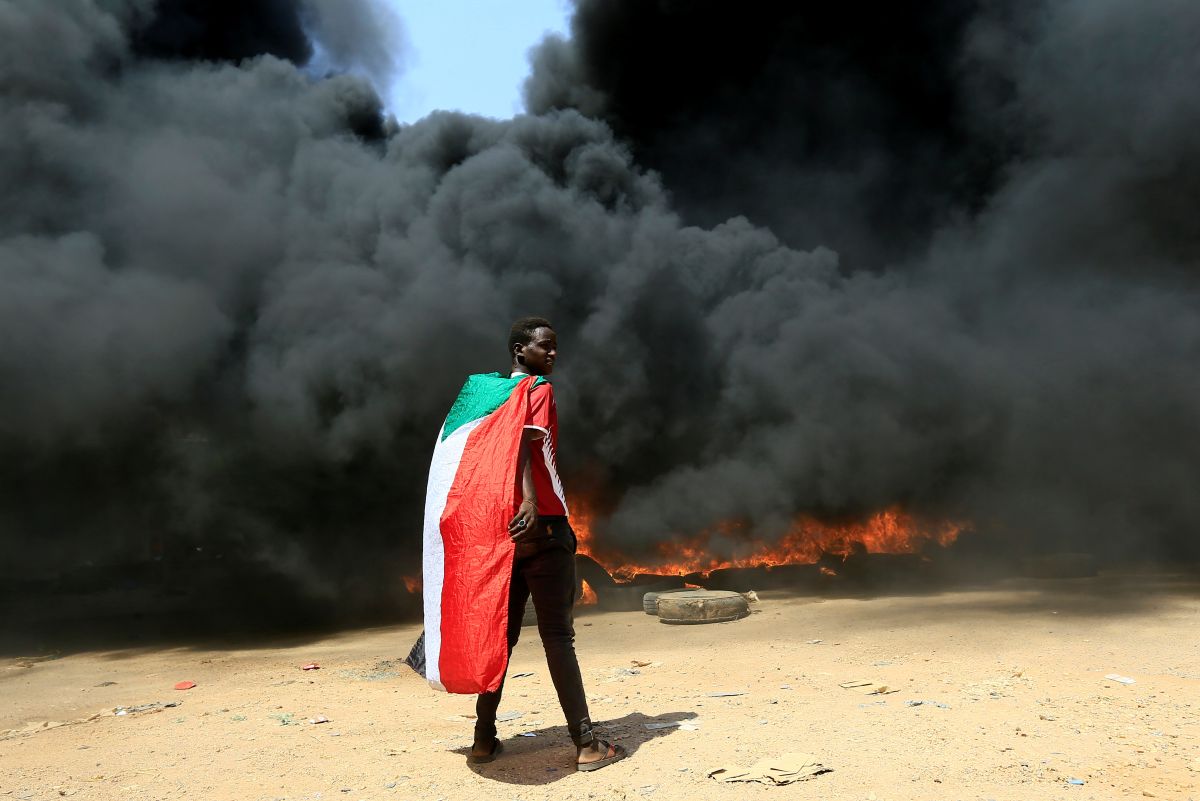Military Coup in Sudan
The military takeover of Sudan led by Gen. Abdel Fatah al-Burhan on 25 October will lead to blocking the process of reforms and the democratic transformation, deepening the economic crisis, and a period of social unrest. If civilian power is not restored, Sudan is threatened with a deterioration in relations with Western partners, which will benefit the Gulf states and Russia.
 Photo: MOHAMED NURELDIN ABDALLAH/Reuters/Forum
Photo: MOHAMED NURELDIN ABDALLAH/Reuters/Forum
What led to the coup?
Since 2020, the state had been led by a temporary civilian-military authority supplemented by former guerrillas (mainly from Darfur). It was a shaky construction and internal disputes broke out, for example, over the status of militias that refused to join the regular army and the issue of control over tax-free companies related to the military and intelligence. The latter were threatened by the activity of a commission dismantling the remains of the Omar al-Bashir regime, overthrown in 2019. These disputes were overlapped by an economic crisis and the upcoming rotation in November in the position of head of state from Gen. Burhan to Prime Minister Abdalla Hamdok. Preparing the ground for a coup, the military refused to react to acts of sabotage, such as the blockade of Port Sudan, which caused a lack of bread, and inspired pro-military strikes. In reaction to the looming coup, around a million people across the country manifested on 21 October in support of democracy.
What will be the consequences in Sudan?
The coup is intended to stop the reforms and steer Sudan back to an authoritarian course. The military authorities will not be willing to hold fair elections if they threaten their position. The experience of the 1989-2019 military regime shows that they will be less competent in managing the economy. Under the slogan of expanding the social base of the government, Islamists and remnants of the Bashir regime’s apparatus may be rehabilitated. Despite the impoverishment of the society in recent years, most Sudanese do not want to give up the gains of recent years, for example, personal freedoms or reducing the power of the security service. This heralds a long period of street confrontations and civil disobedience. At the same time, the reluctance of both sides to return to a civil-military compromise will make it difficult to find a way out of the impasse.
How will the coup affect Sudan’s international position?
The coup took place despite intensive attempts to alleviate the crisis, including by the head of the UN mission and the U.S. envoy. The calculation of the military leaders must have considered that the EU and the U.S. would withhold aid, with the U.S. first to announce it was freezing $700 million for Sudan’s transitional institutions (while maintaining humanitarian aid). The coup leaders must have received a guarantee of support from Egypt and the Gulf states, especially the United Arab Emirates (UAE), for which Sudanese forces fought in the Yemen war. The question of locating a Russian military base on the territory of Sudan, which had been blocked by American pressure, may be reopened. Russia was the only UN Security Council member to refuse to describe the events in Sudan as a coup.
How should Western countries respond to the coup?
Western countries and institutions that strongly supported the changes in Sudan by initiating debt relief, supporting the peace process, granting Sudan after years of isolation access to the international financial system and in other ways, must condition further cooperation on the restoration of civilian authorities. At the same time, the pressure on Saudi Arabia and the UAE must be extended through the “Friends of Sudan” format, a group that includes those countries, the EU, the U.S., the African Union, Egypt, and the most important donor countries. The group has historically been useful in coordinating efforts between the Western and Gulf states and in involving Saudi Arabia and the UAE in constructive engagement with Sudan. It will also be important to support regional mediation initiatives (possibly involving South Sudan), which, however, must go beyond the existing compromise, guaranteeing greater civilian control over the military. Heeding the UN Secretary-General António Guterres determination of the spate of recent takeovers in Africa and Asia as an unacceptable “epidemic of coups”, Poland should support the development of new practices in the UN to respond to similar situations in future.


